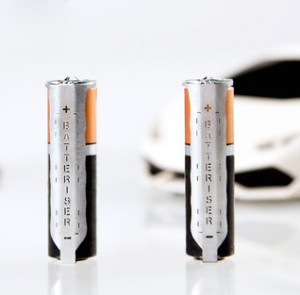Jun
11
2015
i·de·ol·o·gy
noun
1. a system of ideas and ideals, especially one that forms the basis of economic or political theory and policy.
It is my goal as an intellectual and skeptic to purge myself of all ideology, as much as possible. I have come to understand that it is ideology, in its broadest sense, that is largely the enemy of reason. This includes not only political and economic ideology, but also religious, social, and historical.
At its core, an ideology is something you believe because you believe it. It is a moral and intellectual anchor, as well as a lens through which the world is viewed. I am not implying any sort of equivalency – not all ideologies are created equal. We also come to our ideologies through different paths, some more valid than others. Often we absorb them from our family, our society, and our culture. Genetics may also play a role. We seem to be predisposed to certain political ideologies based upon which values speak to us most loudly. We then take those values as if they were the Truth and proceed from there.
There are even ideologies that we arrive at through valid argument and consideration. I consider scientific skepticism, which values doubt, logic, empiricism, and self-knowledge, as a valid and worthwhile ideology. Even then a belief or value system can be a problem if we treat it like an assumption rather than a conclusion.
Continue Reading »
Jun
09
2015
 Charles Lieber with his team at Harvard University have developed a flexible mesh network of electrodes that can be injected through the skull, unfolding onto the surface of the brain. This technology could be a significant advance in our ability to study the brain.
Charles Lieber with his team at Harvard University have developed a flexible mesh network of electrodes that can be injected through the skull, unfolding onto the surface of the brain. This technology could be a significant advance in our ability to study the brain.
Neuroscientists are trying to map the brain in as much detail as possible, creating what is being called the “connectome” (reminiscent of mapping the human “genome”).
There are about 87 billion neurons in the adult human brain. Each neuron is capable of making up to around 10,000 connections to other neurons, which means the total connections in the brain is somewhere around a quadrillion. The saying goes that neurons that wire together fire together, so the pattern of connections determines the pattern of electrical activity in the brain.
Continue Reading »
Jun
08
2015
 Science news outlets are reporting:
Science news outlets are reporting:
“It proves that measurement is everything. At the quantum level, reality does not exist if you are not looking at it,” lead researcher and physicist Andrew Truscott said in a press release.
What scientific understanding gets distilled down to the public consciousness is important, and that is one of the primary missions of good science news reporting. What is the bottom line, “take-home” message that the average person should walk away with regarding any particular experiment or scientific question. This often requires translating complex technical science into accessible every-day concepts without sacrificing accuracy. Obviously technical detail must be watered down, and doing this without making the result wrong is part of the skill of good science reporting.
One of the pitfalls of science reporting is distilling down a complex scientific concept to something that is cool, engaging, and sensational, but fundamentally wrong or at least highly misleading. The public then latches onto the sensational myth and forever misunderstands the actual science.
That is, I believe, what has happened with quantum mechanics, which is perhaps the most challenging science to explain to a non-technical audience. It’s hard enough for scientists to wrap their minds around, even with a highly technical understanding of what the experiments are actually showing. It seems to me that Truscott is perpetuating the greatest myth about quantum mechanics with a very poor choice of words to characterize what his recent experiment has shown.
Continue Reading »
Jun
05
2015
 Allergies are a real problem, and for some people are life-threatening. Allergies also appear to be on the rise in developing countries, and scientists are not sure why.
Allergies are a real problem, and for some people are life-threatening. Allergies also appear to be on the rise in developing countries, and scientists are not sure why.
Meanwhile, charlatans are exploiting fears of allergies and making bogus allergy diagnoses based upon bogus tests. Sense about Science recently published an excellent guide for the consumer to help make sense of what is real and what is fake when it comes to allergies. It is getting increasingly difficult for the consumer, as regulations increasingly fail to maintain a single science-based standard of care in medicine.
Narrative-Based Medicine vs Science-Based Medicine
Fake allergy diagnoses is just one manifestation of what might be called “narrative-based medicine.” I am seeing this phenomenon increasingly, both in my office as patients tell me their tales of their diagnostic misadventures, and as part of my science-based medicine (SBM) activism. The problem is that it takes a genuine dedication to, and thorough understanding of, science-based medicine in order to avoid falling into the trap of confirming your own compelling narrative. There is no sharp demarcation line, but there are examples at the extremes.
Continue Reading »
Jun
04
2015
 A company is claiming that they have created a small sleeve costing only $2.50 that will fit over standard alkaline batteries, and boost their life by up to 800%. My initial reaction to this claim is that it is almost certainly total BS. But I am always willing to give a new claim a fair shake and dive into the details.
A company is claiming that they have created a small sleeve costing only $2.50 that will fit over standard alkaline batteries, and boost their life by up to 800%. My initial reaction to this claim is that it is almost certainly total BS. But I am always willing to give a new claim a fair shake and dive into the details.
The reasons for my initial skepticism are many. Energy scams are common. They often promise incredible effects from implausible devices. Usually, by asking one simple question, you can destroy the claims utterly – from where is the extra energy coming? The laws of thermodynamics are called “laws” for a reason, and reality is a harsh mistress.
Bob Roohparvar, owner of Batteroo which is developing the Batteriser, has an answer to this question. He claims that typical alkaline batteries use about 20% of their available energy. The reason for this high inefficiency is that electronic devices are finicky; they need a steady voltage of 1.5. When an alkaline battery drops below 80% capacity the voltage also drops to 1.4 or 1.3. At that point the device will read the battery as dead, leaving 80% of its juice unused.
The Batteriser, Roohparvar claims, is a miniaturized device that boosts the voltage back up to 1.5, and maintains it there until every last drop of energy is extracted from the battery. OK, I thought, at least he has an answer to the most basic question about such claims. But that is about all he has. Even a slightly deeper dive into battery technology and his claims reveals them to be untenable.
Continue Reading »
Jun
02
2015
 PBS has put up an interactive resource on the GMO (genetically modified organisms) debate. You vote for which side you are on, and then the site feeds you arguments against your position. I like this idea, as it is always helpful to challenge yourself by confronting differing opinions. This is a sort of antiechochamber approach.
PBS has put up an interactive resource on the GMO (genetically modified organisms) debate. You vote for which side you are on, and then the site feeds you arguments against your position. I like this idea, as it is always helpful to challenge yourself by confronting differing opinions. This is a sort of antiechochamber approach.
Since I accept the strong scientific consensus that GMOs are generally safe (each genetic modification needs to be evaluated on its own, but so far existing GMOs have been found safe, and there are no established specific issues with the technology itself), and are a potentially useful technology, I took the pro side, which means PBS fed me all their anti-GMO arguments. I was struck by how consistently terrible their anti-GMO arguments were. It seems that PBS was trying to be fair and thorough, which implies that there are only terrible anti-GMO arguments, so they had no choice.
I am still honestly trying to find a non-terrible anti-GMO argument, because I agree with seeking out the best arguments on all sides of an issue, and being charitable to those arguments. PBS did not fulfill my quest. To be fair to PBS, they are reflecting the talking points of GMO critics, and that is what they say. They are not endorsing these positions. Here are their anti-GMO points:
Continue Reading »
Jun
01
2015
I’m a big fan of science for many reasons. Not only is the subject matter of science often incredibly interesting, but the process of science seems to work better than any other method humans have developed for knowing about the universe in which we live. Any fair-minded and knowledgeable view of human history cannot avoid this conclusion.
It’s therefore worthwhile thinking about and exploring the science of science itself, what we might call metascience. It is, in fact, a common narrative among skeptics and science communicators that, while science is awesome, it is practiced by biased and flawed humans. The history of science is one of error, bias, and ego that manages to slowly grind toward the truth.
Metascience is as important as metacognition, or thinking about thinking, and I write about both topics often. These are core knowledge-bases for any critical thinking skeptic. Here is a list I compiled of the most important issues with the quality of science. The goal here is not to criticize science, but to improve its practice, make it more efficient, minimize wasted resources, and help the public sift the reliable from the nonsense.
I’m now going to add another important concept to the list – citation bias.
Continue Reading »











